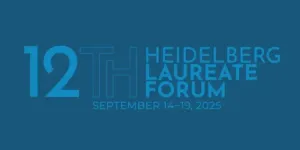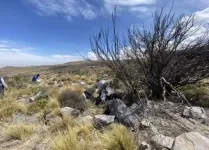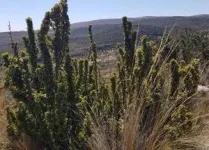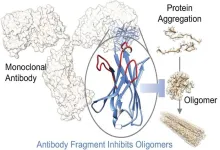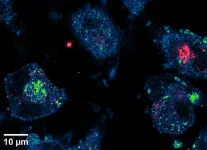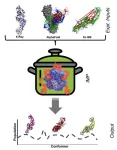(Press-News.org)
This September, recipients of the Abel Prize, ACM A.M. Turing Award, ACM Prize in Computing, Fields Medal, IMU Abacus Medal and the Nevanlinna Prize are invited to gather in Heidelberg to meet with 200 young researchers from all over the world at the 12th Heidelberg Laureate Forum (HLF). In order to reach a broader, more diverse and international audience, the Heidelberg Laureate Forum Foundation (HLFF) encourages journalists to cover the event and affords them the chance to interact with the preeminent scientists of mathematics and computer science. The 12th HLF will take place from September 14 to 19, 2025, and applications for journalist travel grants are accepted until March 31, 2025.
The HLF is an annual networking conference where 200 carefully selected young researchers in mathematics and computer science have the unique chance to meet distinguished scientists in their fields for one week of interdisciplinary academic dialogue. The vibrant atmosphere of the event inspires a blend of scientific discussion and informal interactions among the participants, setting the HLF apart from traditional conferences. Panel discussions, lectures and workshops spur scientifically driven debate, which is then balanced by a variety of social events, permitting participants to pursue their discourse in an inviting environment.
In addition to classic plenary lectures and panel discussions, the HLF features more dynamic formats such as shorter Spark Sessions and one-slide Lightning Talks that provide glimpses into a great variety of topics. This year’s Hot Topic at the HLF will focus in particular on issues related to the “Future of AI”, as the technology and research surrounding it progress at a rapid pace. The Lindau Lecture, held each year to signify the bond between the HLF and the Lindau Nobel Laureate Meetings, will be held by noted chemist David MacMillan, who received the Nobel Prize in Chemistry in 2021 "for the development of asymmetric organocatalysis."
Attending journalists will have the exclusive opportunity to interview renowned laureates from mathematics and computer science, both in press panels and one-on-one. In addition, they will be able to engage directly with some of the most promising young researchers from those fields. Journalists are permitted to take part in virtually all of the Forum’s scientific program elements as well as social gatherings in the evenings. Opportunities will also be provided for journalists to network with their peers in a number of get-togethers reserved for the press corps.
The HLFF offers a limited number of travel grants for international journalists to report on this compelling event: Until March 31, 2025, journalists from all over the world, irrespective of their media affiliation (print, TV, online, radio), are invited to apply for a travel grant for the event via our online tool. These applications must include a short CV, three samples of work (indicating respective medium), an overview of publications (indicating respective medium) and planned coverage regarding the HLF.
Grants cover travel and visa costs as well as room and board during the stay in Heidelberg.
Journalists who do not receive a travel grant or who have missed the travel grant application deadline may nevertheless apply for accreditation to cover the Forum at their own expense.
Apply for a travel grant and/or accreditation here: application.heidelberg-laureate-forum.org
Application periods:
Travel Grant: February 17 – March 31, 2025
Non-Travel Grant: March 3 – September 10, 2025
Background
The Heidelberg Laureate Forum Foundation (HLFF) annually organizes the Heidelberg Laureate Forum (HLF), which is a networking event for mathematicians and computer scientists from all over the world. The 12th Heidelberg Laureate Forum will take place from September 14 to 19, 2025. The HLFF was established and is funded by the German foundation Klaus Tschira Stiftung (KTS), which promotes natural sciences, mathematics and computer science. The scientific partners of the HLF are the Heidelberg Institute for Theoretical Studies (HITS) and Heidelberg University. The HLF is strongly supported by the award-granting institutions, the Association for Computing Machinery (ACM), the International Mathematical Union (IMU), and the Norwegian Academy of Science and Letters (DNVA).
Press Inquiries
Nicole Schmitt
Nikolas Mariani
Communications
Heidelberg Laureate Forum Foundation
Schloss-Wolfsbrunnenweg 33, 69118 Heidelberg, Germany
media@heidelberg-laureate-forum.org
Telephone: +49 6221 533-384
Website: www.heidelberg-laureate-forum.org
Facebook: www.facebook.com/HeidelbergLaureateForum
Instagram: https://www.instagram.com/hlforum/
YouTube: www.youtube.com/LaureateForum
HLFF Blog: www.scilogs.spektrum.com/hlf
END
The evolutionary roots of human dominance and aggression remain central to social and political behaviour, and without conscious intervention these primal survival drives will continue to fuel inequality and division.
These are the arguments of a medical professor who, as global conflicts rise and democracies face growing challenges, says understanding how dominance and tribal instincts fuel division is more critical than ever.
In A New Approach to Human Social Evolution, Professor Jorge A. Colombo MD, PhD explores neuroscience, anthropology, and behavioural science to provide a new perspective on human social evolution.
He argues that fundamental behavioural drives ...
A rare discovery of a nearly complete skull in the Egyptian desert has led scientists to the “dream” revelation of a new 30-million-year-old species of the ancient apex predatory carnivore, Hyaenodonta.
Bearing sharp teeth and powerful jaw muscles, suggesting a strong bite, the newly-identified ‘Bastetodon’ was a leopard-sized “fearsome” mammal. It would have been at the top of all carnivores and the food chain when our own monkey-like ancestors were evolving.
Findings, published in the peer-reviewed Journal of Vertebrate Paleontology, detail ...
University of Leeds news
Embargoed until 05:01 GMT, 17 February
Reintroducing wolves to the Scottish Highlands could lead to an expansion of native woodland which could take in and store one million tonnes of CO2 annually, according to a new study led by researchers at the University of Leeds.
The team modelled the potential impact that wolves could have in four areas classified as Scottish Wild Land, where the eating of tree saplings by growing red deer populations is suppressing natural regeneration of trees and woodland.
They used a predator–prey model to ...
ROCKVILLE, MD – In diseases like Parkinson's and Alzheimer's, specific proteins misfold and clump together, forming toxic aggregates that damage brain cells. The process of proteins spontaneously clumping is called protein aggregation and researchers have developed novel methods to generate aggregate-specific antibodies as specific probes or modulators of the aggregation process.
This new method overcomes significant challenges in characterizing these complex and often transient protein structures. The work will be presented at the 69th Biophysical ...
ROCKVILLE, MD – Marcel P. Goldschen-Ohm, of the University of Texas at Austin, USA will be honored as the recipient of the Biophysical Journal Paper of the Year-Early Career Investigator Award at the 69th Annual Meeting of the Biophysical Society, held February 15-19 in Los Angeles, California. This award recognizes the work of outstanding early career investigators in biophysics. The winning paper is titled “GABAA Receptor Subunit M2-M3 Linkers Have Asymmetric Roles in Pore Gating and Diazepam Modulation.” The paper was published in Volume 123, Issue 14 of Biophysical Journal.
GABAA receptors mediate inhibitory synaptic signaling ...
ROCKVILLE, MD – Phytoplankton, tiny plant-like organisms in the ocean, are incredibly important for life on Earth. They're a major food source for many sea creatures and produce almost half the oxygen we breathe. They also help control the climate by soaking up a lot of carbon dioxide, a gas that contributes to global warming.
Scientists want to learn more about how these phytoplankton use sunlight to make energy and oxygen, which can be useful in the context of environmental monitoring during ...
ROCKVILLE, MD – The Apennine brown bear, also known as the Marsican brown bear (Ursus arctos marsicanus), is a unique and critically endangered subspecies of brown bear found only in the remote and rugged Apennine Mountains of central Italy.
A new study by the Italian Endemixit project (endemixit.com) reveals a potentially critical genetic flaw in the endangered Apennine brown bear population of Italy, offering insights that could help boost conservation efforts. The work will be presented at the 69th Biophysical Society Annual Meeting, to be held February 15 - 19, 2025 in Los Angeles.
This distinct population has been isolated for centuries, evolving unique physical ...
ROCKVILLE, MD – Brain inflammation, while a crucial part of the body's immune response, takes on a detrimental role in Alzheimer's disease. Unlike the acute, short-lived inflammation that combats infection, the inflammation associated with Alzheimer's becomes chronic and persistent. Scientists have been trying to understand why this happens.
New research reveals key differences in how the brain's immune system responds to the disease compared to a bacterial infection. The work will be presented at the 69th ...
ROCKVILLE, MD – In a surprising discovery, scientists have found that the heart possesses "sweet taste" receptors, similar to those on our tongues, and that stimulating these receptors with sweet substances can modulate the heartbeat. This research opens new avenues for understanding heart function and potentially for developing novel treatments for heart failure.
While taste receptors are traditionally associated with the tongue and our ability to perceive flavors, recent studies ...
ROCKVILLE, MD – Viruses, like those that cause COVID-19 or HIV, are formidable opponents once they invade our bodies. Antiviral treatments strive to block a virus or halt its replication. However, viruses are dynamic—constantly evolving and changing shape, which can make designing antiviral treatments a challenge.
But new research utilizes an innovative computational modeling approach to capture the complex and diverse shapes that viral proteins can adopt. The work will be presented at the 69th Biophysical Society Annual Meeting, to be held February 15 - 19, 2025 in Los Angeles.
This new approach, implemented in the open-source Integrative Modeling Platform ...
